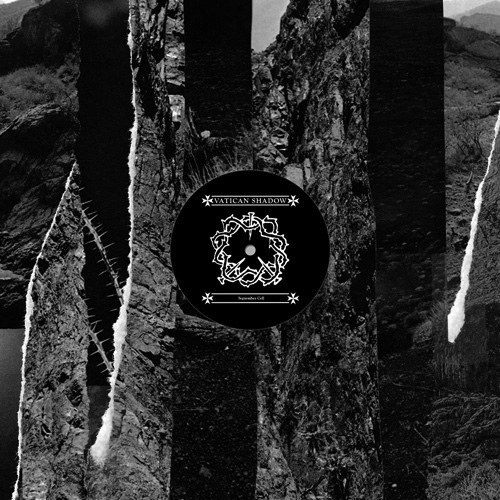Catharsis is a common theme running through all of Dominick Fernow’s work. But where Prurient has long afforded him the opportunity to wrench a weight of personal shit off his chest, his recent Vatican Shadow project has, impressively, already expressed more in a far shorter space of time. Indeed, Fernow is one of the few musicians to so directly address the crippling unease and heavy-handed state propaganda that’s marked US/Arab international relations in the fraught decade since 9/11. With titles that read like newspaper cuttings and soundbites from news reports – ‘Shooter In The Same Uniform As The Soldiers’; ‘Cairo Is A Haunted City’ – Vatican Shadow’s tracks make oblique statements about the desensitising ubiquity of such imagery, and the ways in which certain particularly shocking events can abruptly re-set our reactions to visceral again, like Pavlov de-conditioning his dogs.
In Sonic Warfare, Steve Goodman (aka Kode9) brought together theories linking speed, noise and warfare, from the 1909 manifesto of the Italian Futurists to modern cultural theorist Paul Virilio. The book examined how environmental noise can be used as a method of population control: by tuning inhabitants’ nervous systems to a continual state of stress and agitation, peacetime cities are effectively turned into secret warzones. Vatican Shadow’s music is hewn to match the same subject matter. All technologically scrambled noise and bass pressure, it generates a toxic undertow of bad vibrations that run through city soil and leave the populace flighty, unsettled and easy to manipulate.
The fibrous minor key chords and military radio techno of the September Cell EP are a tad reminiscent of Prurient’s Bermuda Drain, but with Fernow’s fury carefully harnessed, focused, and sprawled outward into bleak postwar wasteland. It’s all the more effective for the restraint: when the rage is finally released – as on ‘September Cell (The Punishment)’ whose percussion crunches like metallic mandibles chewing through concrete – it hits with twice the impact. Fernow drafted in industrial techno pioneer Karl O’Connor (aka Regis) to remix a track for his recent Iraqi Praetorian Guard 12", making explicit Vatican Shadow’s clear debt to O’Connor and fellow dancefloor brutalists like Surgeon and Scorn. September Cell‘s aptly titled ‘Cairo Is A Haunted City’ furthers that connection, its gaseous clouds of synth drifting ominously through a driving 4/4 rhythm, all pinned around the metronomic tsssh of a hi-hat.
Fernow, clad in military garb, debuted the project’s live incarnation in Los Angeles in May. On the night he sold a limited edition cassette recording of the rehearsals leading up to the show, which has since been released digitally as Operation Neptune Spear (titled after the US mission that killed Osama Bin Laden and dumped his body in the sea). It’s a glimpse into the raw and obsessive noise/techno collages of the project’s more aggressive side, subsuming the grace of September Cell into an acid bath of wracked steel percussion and throbbing synth figures. Calls to prayer, chants and broadcast snippets weave through the mix, lending the 20 minute recording all the hoarse fervour of a wild-eyed preacher loudly heralding the apocalypse from a street corner. He’s set to play shows in the UK and Europe later this year – if this debut is anything to go by, they should be special indeed.
The sonic and thematic comparisons that have been drawn between Vatican Shadow and Bryn Jones’ Muslimgauze are apt (Fernow is a stated fan of Jones’ work). Jones admittedly explored pre-millennial Middle Eastern politics and conflicts (he died in 1999), where Fernow’s project is explicitly directed towards the time period since. However, we’re told repeatedly by mainstream media outlets that things now aren’t as bad as they were in the past; here Fernow is out to remind listeners to dig deeper and see that nothing’s really changed, that many of the themes running through Jones’ work are just as relevant in 2012 as they were in the 80s and 90s.


